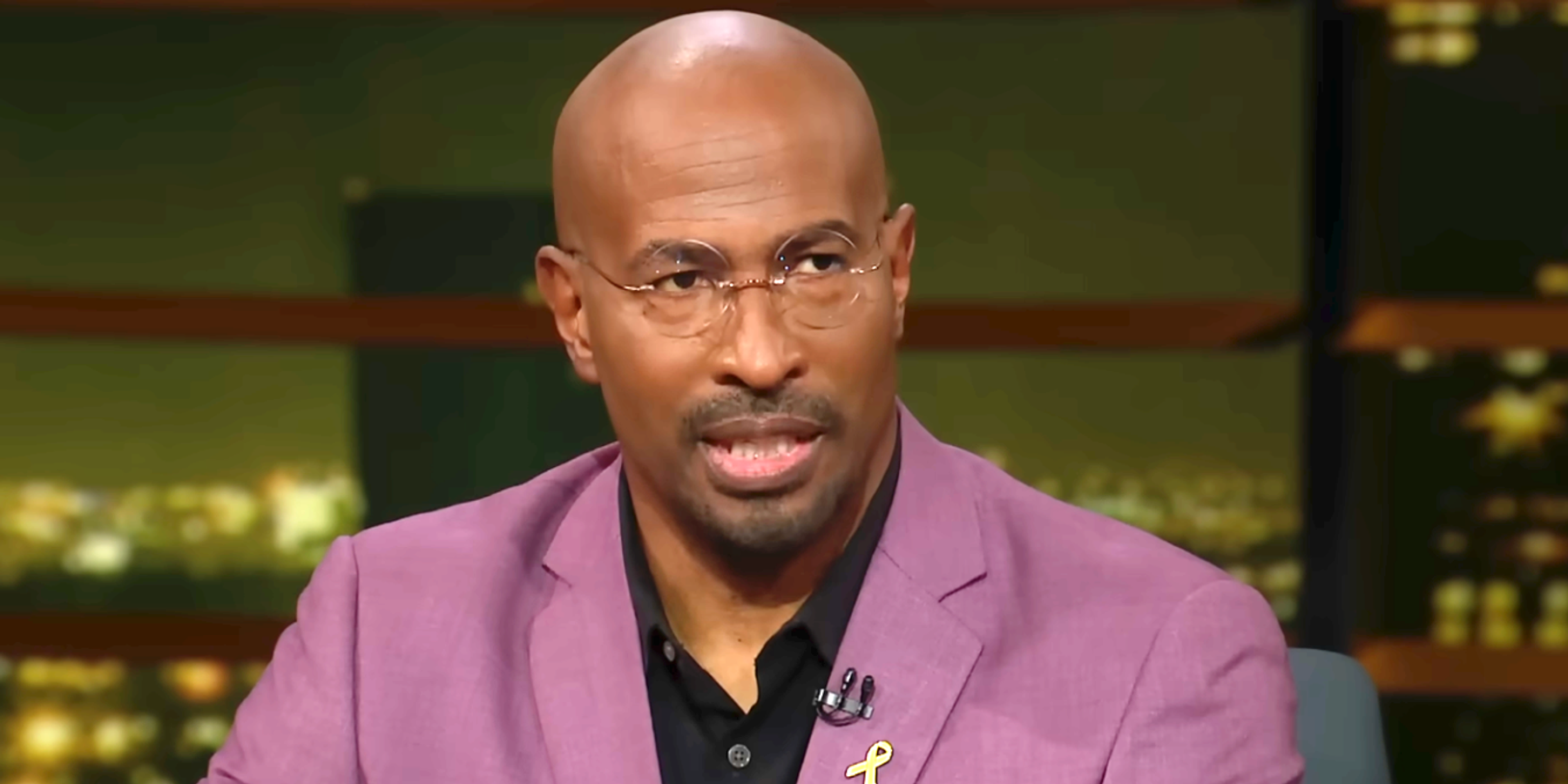On Friday, Van Jones joked about kids dying in Gaza.
“If you open your phone, and all you see is dead Gaza baby, dead Gaza baby, dead Gaza baby, Diddy,” Jones said on Bill Maher’s ‘Real Time’ HBO program.
“That’s basically your whole feed,” Jones said.
The audience laughed and applauded.
The CNN host came off as dismissive of these deaths, calling it a “disinformation campaign” on behalf of Iran and Qatar.
The backlash on social media was fierce, where users made clear that the bloodshed in Gaza was very real and not mere “disinformation.”
Progressive pundit Briahna Joy Reid wrote, “Turning ‘dead Gaza baby’ into a punchline is such an evil choice that I'm struggling to even engage with the outrageous lie that we only care about Gazan deaths because of an Iranian social media campaign.”
The Yaqeen Institute’s Omar Suleiman shot back, “Truly disgraceful and vile (Van Jones). I’m sorry dead Gaza babies bother you so much. Maybe tell the people paying you to put lipstick on a genocide to stop killing them.”
The Quincy Institute’s Trita Parsi said Jones’ comments were a blueprint for how pro-Israel elites try to censor “what is actually happening in Gaza: A genocide of children conducted by Israel and defended by plenty of folks in the US, many of them on Israel's payroll.”
NBC News’s Hola Gorani reacted in a post, “I've watched hundreds of hours of Gaza videos in the last 2 years, including content filmed by our brave teams inside the strip, and can confirm that the ‘dead Gaza baby’ images are quite real, not the product of a ‘disinformation campaign’ and that there is nothing funny about them.”
Media critic Sana Saeed might have summed it up best, “The reason Van Jones can get up, use ‘dead Gaza babies’ so crassly, toss in a joke about Diddy mid-sentence, and have an audience erupt in laughter - without hesitation for either context or content - is because of the depth and breadth of dehumanization that’s been permitted toward Palestinians…There is no America in which ‘dead Jewish babies’ could ever be invoked in such a vulgar way on such a platform.”
On Sunday, Jones apologized. Twice. Jones also turned off X replies to his apology.
This did not stop people from replying.
Democratic Senator Chris Van Hollen perhaps best summarized how many received Jones apology, “I’m glad Van Jones apologized for his sick joking about dead kids in Gaza.”
“But the problem goes deeper: he spread Netanyahu propaganda that the mass killings of civilians in Gaza—including 20K+ kids—is Iranian fake news,” the senator added.
“It’s not the students and young people who are fooled. It’s Van Jones,” Van Hollen said.
The senator is right. A recent poll showed a whopping 41 percent of Americans now call the actions of Israel’s government in Gaza a “genocide.” Another poll showed that in December 2023, 69 percent of Americans believed U.S. support for Israel was in their country’s national interest. Last month, that support for Israel had dropped to 47 percent.
To Van Hollen’s point, younger Americans are increasingly less supportive of Israel.
The mass killing of Palestinians, including children, is not something millions of Americans and the world are merely imagining due to foreign propaganda campaigns of Van Jones’ imagination. The deaths are real, the internet exists, and people are seeing this carnage in real time thanks to modern technology.
And as humanity demands, they are horrified by it.
It’s that simple. No one is making this up. If I included every negative reaction to Jones in the last 48 hours this column could become a novel.
Jones' comments on Friday night came almost literally at the same moment President Donald Trump hailed on X that “Israel has temporarily stopped the bombing in order to give the Hostage release and Peace Deal a chance to be completed.”
Whether Israel actually implemented a ceasefire or Trump’s plan is viable are separate questions. But that even the president acknowledges the ongoing Israeli war on Gaza is key.
This is no fantasy, Van Jones. It’s certainly no joke.
What’s important, and perhaps the lesson to be learned by this controversy, is that pro-Israel elites simply denying the most massive slaughters of human beings in the Middle East this century is no longer viable.
Americans have eyes. Hearts, too.
















